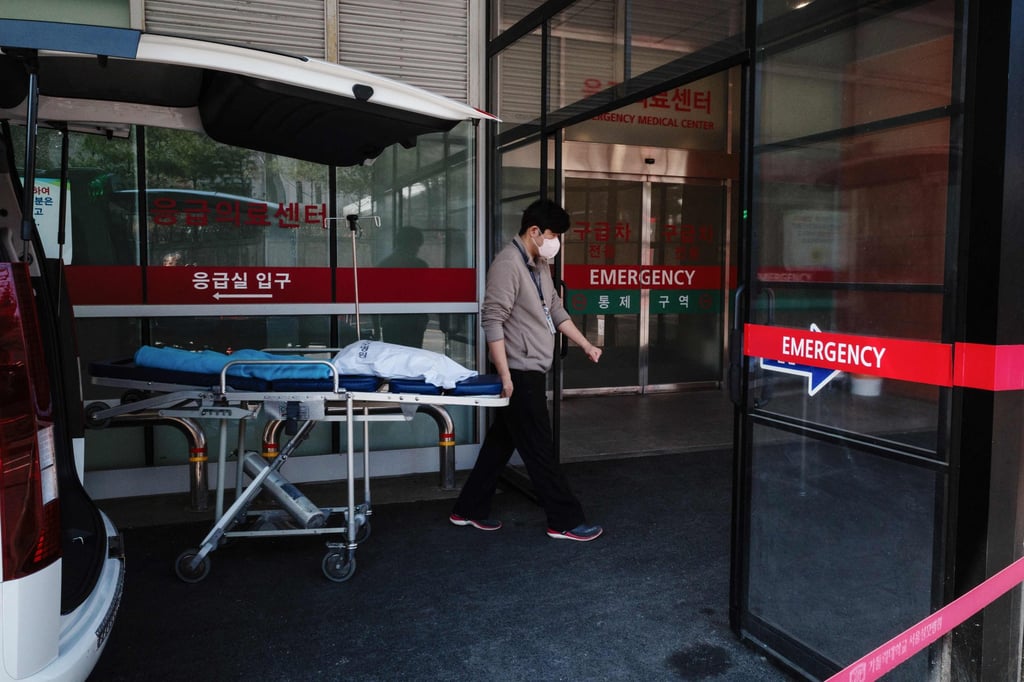South Korea doctors ask ILO to intervene in dispute as Yoon uses issue to ‘win votes’
- Junior doctors who walked off the job say the government’s orders for them to return to work constitute a breach of international norms against forced labour
- The issue isn’t likely to be settled soon as President Yoon’s party has large public backing for the plan to increase medical school places, senior doctors say

South Korea’s trainee doctors have asked the International Labor Organization to intervene in their stand-off with the government, claiming the back-to-work orders imposed on them constitute a breach of international norms against forced labour.
The move comes as the protracted government-physicians confrontation intensifies, with medical professors threatening to resign en masse in a show of support for junior doctors and medical students receiving notices of failure amid widening class boycotts.
“Sadly, I don’t see any prospect of this dispute being settled in the foreseeable future,” Professor Park In-sook of the University of Ulsan College of Medicine told This Week in Asia.

More than 10,000 trainees – accounting for some 93 per cent of their total number – have remained off the job since they resigned en masse on February 20, over what they say is a “unilateral” decision by the government to increase the number of annual enrolments at medical schools from around 3,000 to 5,000, effective next year.
But opponents say structural issues concerning long hours and pay, a dearth of physicians in vital fields, and a concentration of doctors in urban areas mean increasing the number of trainee doctors would not improve the situation.
Trainee doctors, who work up to 80 hours a week earning average wages of 3 million won (US$2,275) a month, play crucial roles at the country’s major hospitals, particularly in emergency and acute healthcare duties. Their absences have led hospitals to turn away some patients from emergency rooms and postpone less urgent surgeries.
